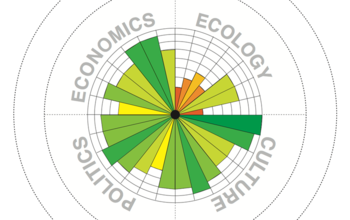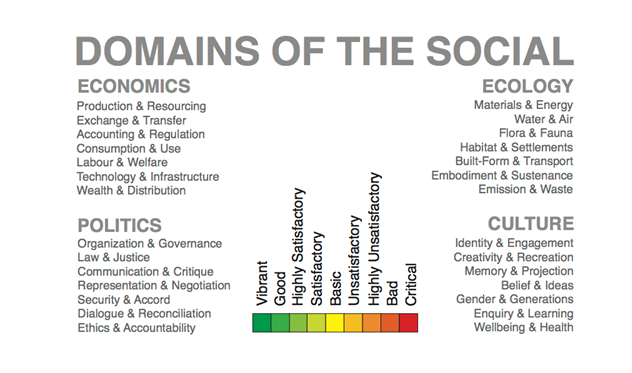
By Paul James, Professor at the Institute for Culture and Society, University of Western Sydney, Australia, and a writer on globalization and social theory. He is Director of the United Nations Global Compact Cities Programme, a UN International Secretariat with offices in Sydney, Melbourne and New Yorkprovide guidance for Metropolis/UCLG thinking on the urban vision.
This approach begins with the proposition that the principles for a positive urban future should begin from a general framework of the human condition, rather than just a set of proposals that are added together from different current or fashionable concerns. We begin with the idea that there should principles that relate to the basic domains of social life: ecology, economics, politics and culture.
Within this proposed framework it is possible to suggest a very simple set of principles that can be readily understood. The following list is a draft list only and would require consultation with members of Metropolis/UCLG.
Principles
Ecology: Urban settlements should have a deeper and more integrated relationship with nature.
- Positive ecological sustainability
Economics: Urban settlements should be based on an economy organized around social needs rather than growth.
- Positive economic inclusion
Politics: Urban settlements should have an enhanced emphasis on engaged and negotiated civic involvement.
- Positive political governance
Culture: Urban settlements should actively develop ongoing processes for dealing with the uncomfortable intersections of identity and difference.
- Positive cultural engagement
Then, using the same framework, it is possible to elaborate the detail with each of the four domains. Again the list below is only a draft list and will inevitably by changed in consultation. The principles maintain their consistency by being related to overall framework. Claims are being made in relation to a systematic set of domains and subdomains as set out in the Circles of Social Life framework












